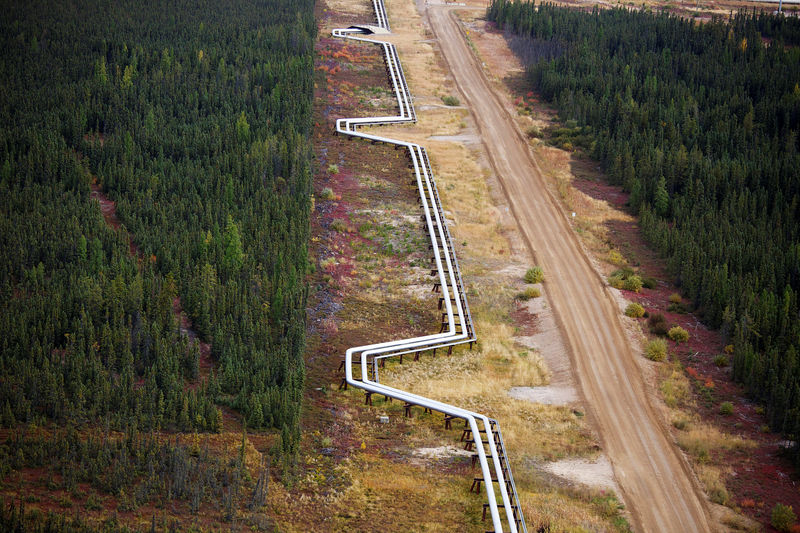(Recasts with provincial energy minister comment)
By Alastair Sharp
TORONTO, Jan 24 (Reuters) - An investigation into an oil spill on an aboriginal reserve in western Canada will include checks of leak-detection measures, Saskatchewan's energy minister said on Tuesday, as crews prepare to excavate the site to confirm the spill's source.
"We need to obviously as part of that investigation make that determination of when exactly the leak did take place and whether the monitoring system that the company employs is adequate enough," Dustin Duncan told reporters in Regina, the provincial capital.
Some 200,000 liters (52,834 gallons) of oil leaked last week onto the Ocean Man First Nation, 140 km (87 miles) southeast of Regina. trucks are on site to remove oil and contaminated soil, with excavation expected to begin on Wednesday.
Authorities were notified of the leak on Friday, when an area resident who had smelled the scent of oil for a week located the spill and alerted the band's chief, who notified Tundra Energy Marketing Ltd.
Tundra has a line adjacent to the spill and is leading cleanup efforts, but has not publicly confirmed its pipeline as the source of the leak.
Crescent Point Energy Corp CPG.TO , which also has assets in the area, said Tundra notified them on Friday of a "suspected anomaly on a portion of their system".
If the problem persists, Crescent Point may have to divert around 1,000 barrels a day of its crude heading to facilities in neighboring Manitoba, spokesman Trent Stangl said.
Tundra, part of Canadian grain trading and energy conglomerate James Richardson and Sons Ltd, said late on Monday it is cooperating with all levels of government and will ensure "the affected land is restored appropriately."
"There has to be a time frame set that they follow up every week, every month, every season depending on what the weather can cause, and every year, until Ocean Man is satisfied that yes, everything is okay," Chief Connie Big Eagle said.
No residences are close to the spill site but it is near a cemetery which is considered sacred land by the band.
Pipelines are viewed by the oil-rich provinces of Alberta and Saskatchewan as critical lifelines, but draw fierce opposition from environmental and indigenous groups.
"It just raises the issue yet again, that if you are going to build these pipelines, you're going to be placing communities and water and land at risk," said Gretchen Fitzgerald, national program director at the Sierra Club Canada Foundation.
